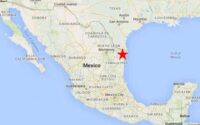Manhunt for former top aide to ex-Md. Gov. Hogan
A manhunt is underway for the former chief of staff to ex-Maryland Republican Gov. Larry Hogan after he failed to appear in federal court Monday for the start of his corruption trial.
US District Judge Deborah Boardman issued an arrest warrant for Roy McGrath when he was a no-show at the Baltimore courthouse.
McGrath’s lawyer, Joseph Murtha, said he last talked to his client on Sunday — when they had what he called a “substantively productive conversation” — and expected to see McGrath in court.
Murtha told the Baltimore Sun he hasn’t been able to reach McGrath, 53, since Sunday night, when McGrath was scheduled to board a plane near his home in Florida for a flight to Maryland.
“I have been in contact with [McGrath’s wife] Laura and she shared her concern for Roy’s safety,” Murtha told the newspaper in a text message.
“She has requested that the media respect her need for privacy at this very difficult time.”
On Tuesday, law enforcement agents were scouring the neighborhood and home of McGrath in Naples, Fla., and the US Marshals Service has declared him a “fugitive.”

McGrath faces charges that include wire fraud, embezzlement, misconduct in office and improper use of state funds.
He is accused of falsely arranging a $233,647 severance payment – equivalent to one year’s salary — when he stepped down as head of the Maryland Environmental Service in May 2020.
Prosecutors say McGrath got the agency’s board to approve the payment by falsely telling them Hogan was aware of the severance package and had approved of it.
McGrath served as a top aide to Hogan, a Republican, for about 11 weeks before resigning in August 2020 when media reports surfaced about his severance. He also faces fraud and embezzlement charges connected to roughly $170,000 in expenses.

If convicted of the federal charges, McGrath faces a maximum sentence of 20 years in federal prison for each of four counts of wire fraud; and a maximum of 10 years in federal prison for each of two counts of embezzling funds from an organization receiving more than $10,000 in federal benefits.


